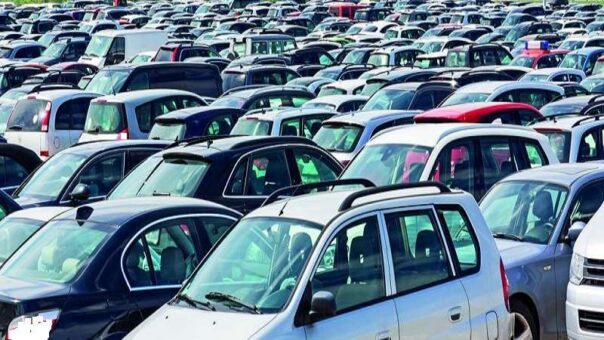Karachi, May 18, 2024 – Pakistan has witnessed a remarkable surge in car imports, with a staggering 256 percent increase during the first ten months (July – April) of the fiscal year 2023-24. This significant rise is detailed in the latest data released by the Pakistan Bureau of Statistics (PBS).
According to the PBS report, the import of Completely Built Unit (CBU) cars into Pakistan soared to $207.54 million during the ten-month period, a dramatic increase from the $58.36 million recorded in the corresponding months of the previous fiscal year. This surge highlights a substantial growth in demand for imported cars despite economic challenges and import restrictions.
Conversely, the import of heavy vehicles, including buses and trucks, experienced a sharp decline. The PBS data shows a 57 percent drop, with imports valued at $45.27 million during July – April of 2023-24, compared to $104.87 million in the same period of the previous fiscal year. This decline in heavy vehicle imports could be attributed to reduced infrastructure projects and economic slowdown affecting large-scale commercial vehicle demand.
The motorcycle import sector also saw a minor decrease. The import value of motorcycles fell by 1.33 percent to $1.34 million during the first ten months of the current fiscal year, slightly down from $1.36 million in the corresponding months of the previous fiscal year. This marginal decline suggests a relatively stable demand for motorcycles, despite broader economic pressures.
Overall, the total import of CBU vehicles into Pakistan, which includes cars, heavy vehicles, and motorcycles, increased by 54.42 percent. The total import value reached $254.15 million during the first ten months of the current fiscal year, up from $164.58 million in the same period of the last fiscal year. This overall growth is primarily driven by the surge in car imports, which significantly outweighs the declines in other vehicle categories.
Industry experts attribute the surge in car imports to several factors, including the easing of certain import restrictions, increased consumer preference for foreign car models, and a recovering economy driving higher spending power among consumers. However, the contrasting decline in heavy vehicle imports underscores ongoing challenges in the commercial and industrial sectors.
As Pakistan navigates its economic landscape, these import trends will play a crucial role in shaping the automotive and transportation sectors. Policymakers and industry stakeholders will need to consider these dynamics in their strategic planning to ensure balanced growth and address sector-specific challenges.
The PBS data highlights a complex picture of Pakistan’s import activities, reflecting both opportunities and challenges in the broader economic context. As the fiscal year progresses, continued monitoring and adaptive strategies will be essential to leverage growth areas and mitigate downturns in the import market.
